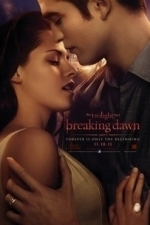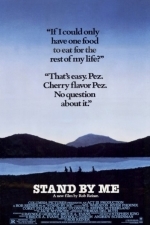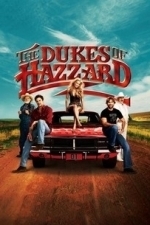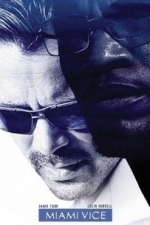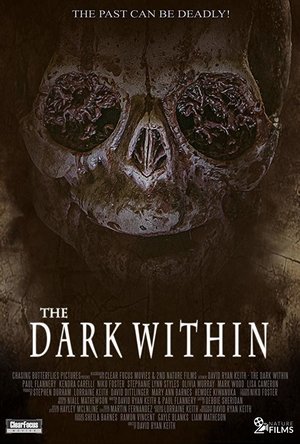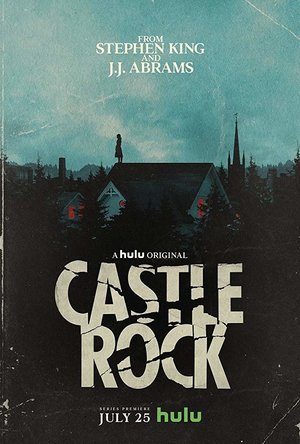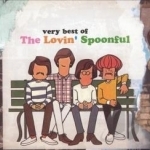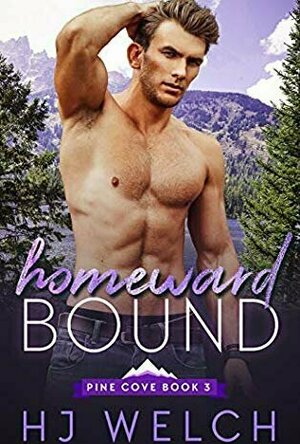Search
Search results
Movie Metropolis (309 KP) rated The Twilight Saga: Breaking Dawn Part 1 (2011) in Movies
Jun 11, 2019
Finally, a Twilight film that doesn’t have men in the audience going green with envy as they stare at Taylor Lautner’s washboard abs and finally, a Twilight film that doesn’t actually stink.
Of course, those of you familiar with my reviews know that I’m not fond of the Twilight Saga in the slightest, but here I’m prepared to eat my words as newcomer Bill Condon (Dreamgirls) directs a surprisingly enjoyable outing. Unfortunately, it all comes a bit late as this is the penultimate film in Stephanie Meyer’s book series.
Sadly, the Twilight films have never had the critical success of their Harry Potter cousins, probably due to their wooden acting, dire scripting and disappointing special effects, but here, Breaking Dawn Part 1 manages to be at least as good as the first two films of its wizarding counterpart.
The similarities between the two series’ don’t stop there. The decision to split the final book in the Twilight series was probably done because of the success Harry Potter had by splitting the final book into two films.
Here, Bill Condon manages to inject some life into the franchise with good acting, good special effects and finally, a good storyline. Edward (Robert Pattinson) and Bella (Kristen Stewart) have finally decided to tie the knot. Naturally, Jacob (Taylor Lautner) is less than pleased with this announcement and decides to run away in a fit of rage. Will he be back for the wedding? GASP!
Alas, he makes it and just before Edward whisks Bella on their honeymoon, some pleasantries are exchanged between the bride and the wolf. So, the honeymoon comes and Bella realises she’s pregnant; oh dear. The film then follows her journey to becoming a mother and the growing beast inside her. Thankfully, the point where the film is split doesn’t jar like it did in Harry Potter and the Deathly Hallows and seems to follow a natural ending.
The special effects have also upped their game for the latest instalment as the (still blatantly obvious) CGI werewolves look much more realistic. Also, the acting has improved leaps and bounds with Kristen Stewart being a real highlight. The realisation that motherhood could kill her is fantastically portrayed by Stewart, though the special effects making her look frail probably helped here.
Taylor Lautner is the best out of the male leads and does the role some justice, whilst Robert Pattinson is mediocre as Edward.
There’s still a problem with the films pacing however. It seems that events that would take 10 minutes worth of screen time in other films have to take 30 in the Twilight saga; it’s a major annoyance as it interrupts the flow of the film and the constant close ups of the characters’ faces grate after a while.
Also, Condon has clearly not directed many films that require action scenes. A major fight with the werewolves and the Cullen’s should have been a real highlight, but it’s a sloppily directed sequence with bodies mashing together. You’re unsure as to who is who, a problem which blights the Transformers film series.
Thankfully there are numerous highlights, the shots of Rio are breath-taking and Bella giving birth is truly horrific, you can’t take your eyes of the screen for a second. Also worth a mention is a part where the werewolves are running through the forest and end up in a logging plant. It’s a fabulous sequence that really makes you grip your seat.
The Twlight Saga: Breaking Dawn Part 1 is a good film. It finally makes use of the promising source material it has been blessed with and it’s pleasing to see that a good sense of direction is all it takes to turn around the fortunes of a film series. It’s far from perfect, with sloppy action scenes and terrible pacing, but finally, I left the cinema with a sense of happiness – I’m actually looking forward to part two. (I can’t believe I just said that.)
https://moviemetropolis.net/2011/11/27/the-twilight-saga-breaking-dawn-part-1-2011/
Of course, those of you familiar with my reviews know that I’m not fond of the Twilight Saga in the slightest, but here I’m prepared to eat my words as newcomer Bill Condon (Dreamgirls) directs a surprisingly enjoyable outing. Unfortunately, it all comes a bit late as this is the penultimate film in Stephanie Meyer’s book series.
Sadly, the Twilight films have never had the critical success of their Harry Potter cousins, probably due to their wooden acting, dire scripting and disappointing special effects, but here, Breaking Dawn Part 1 manages to be at least as good as the first two films of its wizarding counterpart.
The similarities between the two series’ don’t stop there. The decision to split the final book in the Twilight series was probably done because of the success Harry Potter had by splitting the final book into two films.
Here, Bill Condon manages to inject some life into the franchise with good acting, good special effects and finally, a good storyline. Edward (Robert Pattinson) and Bella (Kristen Stewart) have finally decided to tie the knot. Naturally, Jacob (Taylor Lautner) is less than pleased with this announcement and decides to run away in a fit of rage. Will he be back for the wedding? GASP!
Alas, he makes it and just before Edward whisks Bella on their honeymoon, some pleasantries are exchanged between the bride and the wolf. So, the honeymoon comes and Bella realises she’s pregnant; oh dear. The film then follows her journey to becoming a mother and the growing beast inside her. Thankfully, the point where the film is split doesn’t jar like it did in Harry Potter and the Deathly Hallows and seems to follow a natural ending.
The special effects have also upped their game for the latest instalment as the (still blatantly obvious) CGI werewolves look much more realistic. Also, the acting has improved leaps and bounds with Kristen Stewart being a real highlight. The realisation that motherhood could kill her is fantastically portrayed by Stewart, though the special effects making her look frail probably helped here.
Taylor Lautner is the best out of the male leads and does the role some justice, whilst Robert Pattinson is mediocre as Edward.
There’s still a problem with the films pacing however. It seems that events that would take 10 minutes worth of screen time in other films have to take 30 in the Twilight saga; it’s a major annoyance as it interrupts the flow of the film and the constant close ups of the characters’ faces grate after a while.
Also, Condon has clearly not directed many films that require action scenes. A major fight with the werewolves and the Cullen’s should have been a real highlight, but it’s a sloppily directed sequence with bodies mashing together. You’re unsure as to who is who, a problem which blights the Transformers film series.
Thankfully there are numerous highlights, the shots of Rio are breath-taking and Bella giving birth is truly horrific, you can’t take your eyes of the screen for a second. Also worth a mention is a part where the werewolves are running through the forest and end up in a logging plant. It’s a fabulous sequence that really makes you grip your seat.
The Twlight Saga: Breaking Dawn Part 1 is a good film. It finally makes use of the promising source material it has been blessed with and it’s pleasing to see that a good sense of direction is all it takes to turn around the fortunes of a film series. It’s far from perfect, with sloppy action scenes and terrible pacing, but finally, I left the cinema with a sense of happiness – I’m actually looking forward to part two. (I can’t believe I just said that.)
https://moviemetropolis.net/2011/11/27/the-twilight-saga-breaking-dawn-part-1-2011/
BankofMarquis (1832 KP) rated Stand by Me (1986) in Movies
Jun 15, 2018
A Modern Classic
Remember the days of your youth, when Summer was just one long vacation - where you and your buddies would take off and let the day unfold as it presents itself - no schedules, no meetings and the only clock was the rising and setting of the sun?
Such, nostalgic, feelings and remembrances is at the heart of the 1986 Rob Reiner film, STAND BY ME, a "coming of age" tale of boys on the cusp of leaving boyhood behind.
Based on a Stephen King novella, STAND BY ME follows the adventures of Gordie LaChance and his pals Vern, Teddy and Chris as they set off to find the body of a young man who has been missing - and presumed dead.
But it is not the destination that is at the heart of this story, it is the journey - and what a journey, filled with heart, it is. We join in with these 4 boys as the walk towards the unknown - both physically and (more importantly) metaphorically, growing and developing in front of our eyes.
Credit for this film has to start with Director Rob Reiner - mainly known before this film as "Meathead" on the classic TV Series ALL IN THE FAMILY. This was Reiner's 5th film as a Director and, I believe, announced his "arrival" as a signature Director. Look at the run Reiner had. In order, he directed THIS IS SPINAL TAP, THE SURE THING, STAND BY ME, THE PRINCESS BRIDE, WHEN HARRY MET SALLY, MISERY and A FEW GOOD MEN. I would also include THE AMERICAN PRESIDENT and GHOSTS OF MISSISSIPPI in this list, but they come after the misfire NORTH. But, 9 out of 10 good films is quite the track record.
What struck me in this showing of the film (seen on the big screen for the first time by me since 1986) is the contrast between intimacy and enormity. When the boys are on their trek, Reiner shoots a good deal of these scenes from a distance - showing how small these boys are in comparison to the world around them. But, when the scene is an intimate, dialogue, character-driven scene, he tightens his shots right into the faces of the 4 leads, creating an intimacy that draws us into these characters.
The other credit has to go to whomever cast this film - for the 4 unknown boys that were cast in the leads were well cast, indeed.
Start with Wil Wheaton as Gordie. Gordie has spent his whole life in the shadow of his over-achieving "All American" brother, trying to be noticed for who - and what - he is, an author, not an athlete. Wheaton brings the right combination of determination, intelligence and vulnerability to Gordie, giving us a protagonist we can root for. Jerry O'Connell was funnier than I remembered as the "fat kid", Vern, who just wants to play by the rules, but always goes along with his friends, despite his better judgement. Corey Feldman has never been better than he is here as Teddy Duchamp - a young boy with a troubled home life - and a troubled life - that is trying to control, and understand, the rage inside of him.
But it is the work of the late River Phoenix as Chris Chambers, the "leader" of this group that really shines. He is the glue that keeps this foursome together, strong but showing a vulnerability and a "realistic" view of what it is to be a misunderstood youth - the hurt that comes with that and the walls that one puts up to combat that. Phoenix commands the screen in every scene that he is in and when the scene is just Phoenix and Wheaton, you are drawn into a real friendship.
I was surprised, at this viewing, at how serious this film is - and the topics that this film addresses - but those moments are wisely balanced by scenes of action/adventure (like the train tressel scene), comedy (like the the "lard-ass" pie eating scene) and "other" moments (the leaches!).
This is one of those films that is getting better with time - it is aging well - and, rightfully, fits in the category of "Modern Classic".
Letter Grade: A
Such, nostalgic, feelings and remembrances is at the heart of the 1986 Rob Reiner film, STAND BY ME, a "coming of age" tale of boys on the cusp of leaving boyhood behind.
Based on a Stephen King novella, STAND BY ME follows the adventures of Gordie LaChance and his pals Vern, Teddy and Chris as they set off to find the body of a young man who has been missing - and presumed dead.
But it is not the destination that is at the heart of this story, it is the journey - and what a journey, filled with heart, it is. We join in with these 4 boys as the walk towards the unknown - both physically and (more importantly) metaphorically, growing and developing in front of our eyes.
Credit for this film has to start with Director Rob Reiner - mainly known before this film as "Meathead" on the classic TV Series ALL IN THE FAMILY. This was Reiner's 5th film as a Director and, I believe, announced his "arrival" as a signature Director. Look at the run Reiner had. In order, he directed THIS IS SPINAL TAP, THE SURE THING, STAND BY ME, THE PRINCESS BRIDE, WHEN HARRY MET SALLY, MISERY and A FEW GOOD MEN. I would also include THE AMERICAN PRESIDENT and GHOSTS OF MISSISSIPPI in this list, but they come after the misfire NORTH. But, 9 out of 10 good films is quite the track record.
What struck me in this showing of the film (seen on the big screen for the first time by me since 1986) is the contrast between intimacy and enormity. When the boys are on their trek, Reiner shoots a good deal of these scenes from a distance - showing how small these boys are in comparison to the world around them. But, when the scene is an intimate, dialogue, character-driven scene, he tightens his shots right into the faces of the 4 leads, creating an intimacy that draws us into these characters.
The other credit has to go to whomever cast this film - for the 4 unknown boys that were cast in the leads were well cast, indeed.
Start with Wil Wheaton as Gordie. Gordie has spent his whole life in the shadow of his over-achieving "All American" brother, trying to be noticed for who - and what - he is, an author, not an athlete. Wheaton brings the right combination of determination, intelligence and vulnerability to Gordie, giving us a protagonist we can root for. Jerry O'Connell was funnier than I remembered as the "fat kid", Vern, who just wants to play by the rules, but always goes along with his friends, despite his better judgement. Corey Feldman has never been better than he is here as Teddy Duchamp - a young boy with a troubled home life - and a troubled life - that is trying to control, and understand, the rage inside of him.
But it is the work of the late River Phoenix as Chris Chambers, the "leader" of this group that really shines. He is the glue that keeps this foursome together, strong but showing a vulnerability and a "realistic" view of what it is to be a misunderstood youth - the hurt that comes with that and the walls that one puts up to combat that. Phoenix commands the screen in every scene that he is in and when the scene is just Phoenix and Wheaton, you are drawn into a real friendship.
I was surprised, at this viewing, at how serious this film is - and the topics that this film addresses - but those moments are wisely balanced by scenes of action/adventure (like the train tressel scene), comedy (like the the "lard-ass" pie eating scene) and "other" moments (the leaches!).
This is one of those films that is getting better with time - it is aging well - and, rightfully, fits in the category of "Modern Classic".
Letter Grade: A
Gareth von Kallenbach (980 KP) rated The Dukes of Hazzard (2005) in Movies
Aug 14, 2019
Those good ol’ boys from Hazzard County are back, in the film version of one of the most enduring series from the 70’s.
For those unfamiliar with the series, each week Cousins Bo and Luke Duke used their super charged Dodge Charger, christened “The General Lee”, to avoid corrupt police, city overlord Boss Hogg, and bad guys of the week.
If this sounds very simplistic, it is, yet the show was a huge ratings sensation as were subsequent T.V. reunions after the show completed its run. Thanks to reruns on syndication and the recent DVD sales, a new generation is encountering the Dukes and in many ways, that is who the new film is targeted to.
Starring Johnny Knoxville and Sean William Scott as Luke and Bo Duke, the film follows the basic theme of the series as the two cousins joke with one another as they run Moonshine for their Uncle Jessie (Willie Nelson), and try to stay one step ahead of the Sheriff Roscoe P. Coltrane (M.C. Gainey),
As the film opens, Bo is concerned about defending his title in the annual road rally and tying the record with his 4th consecutive win. Luke is concerned about staying one step ahead of a shotgun toting father & son duo who aren’t thrilled about his numerous dalliances with the daughter.
It is all fun and games until local overlord Boss Hogg (Burt Reynolds), seizes the family farm when he plants a still on the property and drives the Dukes out. Not ones to take it sitting down, Bo, Luke, and Cousin Daisy (Jessica Simpson), set out to discover why Boss Hogg is acquiring through ruthless means all of the land in the outlying areas of Hazzard County.
Bo and Luke are forced to flee Hazzard County and venture to Atlanta in order to gain further insight into Boss Hogg’s plans, which results in some funny fish-out-of-water moments when Bo and Luke have to deal with yuppies, college dorms, and the ‘hood as well as city police and the Boss himself.
Of course in keeping with the show, there will be countless car chases, spectacular jumps, and more than enough T&A thanks to Simpson, but what is surprising is that the film’s humor for the most part works.
Directed by Jay Chandrasekher of the Broken Lizard comedy troupe, the film does have its share of moments that may raise a few eyebrows as drug use, sex, and shots to the groin are present in this film, as is language that is more colorful than anything from the original series.
That being said, it is important to remember, that times have changed greatly since the Dukes first aired and you cannot blame the film makers for attempting to reach out to a broader audience. Such is the running joke of Bo being more concerned with his car than with woman, and his inability to speak with the object of his affections without fainting. This is quite a change from the unflappable character of the television show, yet one that still allows the good natured appeal of the character to remain intact.
The cast works well, especially the chemistry between Knoxville and Scott, as well as the scenery chewing performance of Reynolds who seems to be having the time of his life in the role. Much has been made of Simpson’s part, but it is mostly a limited role that offers her little chance to do much more than serve as eye candy, and does not show if she is capable of doing much more.
Nelson is sadly underused, but when he is on screen he raises the bar as his easygoing charm is a perfect match for Uncle Jessie.
While the film is in no way great cinema, it is at times an enjoyable bit of nostalgia to the days when Friday nights growing up meant dinner in front of the television watching the Dukes.
If car chases and some light comedy are what you are in the mood for, and you do not mind a thin story, you can do a lot worse than the Dukes.
For those unfamiliar with the series, each week Cousins Bo and Luke Duke used their super charged Dodge Charger, christened “The General Lee”, to avoid corrupt police, city overlord Boss Hogg, and bad guys of the week.
If this sounds very simplistic, it is, yet the show was a huge ratings sensation as were subsequent T.V. reunions after the show completed its run. Thanks to reruns on syndication and the recent DVD sales, a new generation is encountering the Dukes and in many ways, that is who the new film is targeted to.
Starring Johnny Knoxville and Sean William Scott as Luke and Bo Duke, the film follows the basic theme of the series as the two cousins joke with one another as they run Moonshine for their Uncle Jessie (Willie Nelson), and try to stay one step ahead of the Sheriff Roscoe P. Coltrane (M.C. Gainey),
As the film opens, Bo is concerned about defending his title in the annual road rally and tying the record with his 4th consecutive win. Luke is concerned about staying one step ahead of a shotgun toting father & son duo who aren’t thrilled about his numerous dalliances with the daughter.
It is all fun and games until local overlord Boss Hogg (Burt Reynolds), seizes the family farm when he plants a still on the property and drives the Dukes out. Not ones to take it sitting down, Bo, Luke, and Cousin Daisy (Jessica Simpson), set out to discover why Boss Hogg is acquiring through ruthless means all of the land in the outlying areas of Hazzard County.
Bo and Luke are forced to flee Hazzard County and venture to Atlanta in order to gain further insight into Boss Hogg’s plans, which results in some funny fish-out-of-water moments when Bo and Luke have to deal with yuppies, college dorms, and the ‘hood as well as city police and the Boss himself.
Of course in keeping with the show, there will be countless car chases, spectacular jumps, and more than enough T&A thanks to Simpson, but what is surprising is that the film’s humor for the most part works.
Directed by Jay Chandrasekher of the Broken Lizard comedy troupe, the film does have its share of moments that may raise a few eyebrows as drug use, sex, and shots to the groin are present in this film, as is language that is more colorful than anything from the original series.
That being said, it is important to remember, that times have changed greatly since the Dukes first aired and you cannot blame the film makers for attempting to reach out to a broader audience. Such is the running joke of Bo being more concerned with his car than with woman, and his inability to speak with the object of his affections without fainting. This is quite a change from the unflappable character of the television show, yet one that still allows the good natured appeal of the character to remain intact.
The cast works well, especially the chemistry between Knoxville and Scott, as well as the scenery chewing performance of Reynolds who seems to be having the time of his life in the role. Much has been made of Simpson’s part, but it is mostly a limited role that offers her little chance to do much more than serve as eye candy, and does not show if she is capable of doing much more.
Nelson is sadly underused, but when he is on screen he raises the bar as his easygoing charm is a perfect match for Uncle Jessie.
While the film is in no way great cinema, it is at times an enjoyable bit of nostalgia to the days when Friday nights growing up meant dinner in front of the television watching the Dukes.
If car chases and some light comedy are what you are in the mood for, and you do not mind a thin story, you can do a lot worse than the Dukes.
Gareth von Kallenbach (980 KP) rated Miami Vice (2006) in Movies
Aug 14, 2019
In 1984 a show arrived on NBC that instantly became a media sensation and set new standards for television dramas, as well as for music and fashion as it soon became a cultural icon.
The show was Miami Vice, and up until the final episode in 1989, legions of viewers tuned in every Friday night for a heady mix of action, music, color, and sex making series stars Philip Michael Thomas and Don Johnson some of the most identified and emulated celebrities in the world.
As time passed, the fickle television audience cooled on the show and it passed to television history, but not before leaving an indelible mark upon pop culture as to this day, the mere mention of the show unleashes a flood of memories and images from fans the world over.
Now close to two decades after the show went off the air, the creative talent behind the show, Michael Mann, has unleashed a cinematic version of his hit series, and it has arrived awash in the trademark neon colors, action, and style that made the series such a hit.
This time out, Oscar winner Jaime Foxx and Colin Farrell are Tubs and Crockett respectively, and they soon find themselves deep undercover posing as drug runners while trying to get to the bottom of a leak inside one of the law enforcement agencies. As troublesome as the leak, is, the fact that leaked information caused the deaths of undercover agents, by suspected white supremacists armed with the latest in high tech weaponry.
The deadly game of cloak and dagger unfolds as Tubbs and Crockett find themselves deep into a major criminal organization, and to add to the tension, Crockett finds himself drawn to an attractive member of the organization (Li Gong), who “belongs” to the head of the criminal plot.
As the plot unfolds, the danger of being discovered as well as becoming lost in the parts they are playing becomes a growing danger for Tubbs and Crockett, as they not only battle to keep their cover, but to stay alive and protect those closest to them.
The film has a plot that is a bit muddled at first, but like the world in which Tubbs and Crockett find themselves, there are not always clearly defines parameters as well as individuals. As simplistic as the basic plot may seem, the varying layers of characters, locales, and motivations keeps Miami Vice, a changing mystery, yet one that is lacking tension and deep drama.
The first hour of the film plods along with plenty of sex and setup, but surprisingly little action. I noted that there were five scenes of sex, and at least two more implied sex scenes before one of the lead characters even fired a weapon, which surprisingly came at 1 Hour and 40 minutes into the film.
While the film may take a while to get to the action, when it does come, it is surprisingly effective without falling victim to the usual Hollywood Traps of numerous gigantic explosions, car chases, stunts, and an abundance of C.G.I.
The violence in the film is also very graphic as there are numerous headshots, as well as splatter moments and gaping exit wounds. Despite this, it does not seem gratuitous but rather realistic as it portrays the brutality of the characters as well as the world in which they live and work.
The surprisingly effective finale confrontation satisfies and like any good director, Mann knows when to pull back, and when to go full out, without letting the action dominate the characters and the story.
Farrell and Foxx do a solid job with their characters without having the luxury of a deep back story. Mann’s script takes the approach that the viewers will know the characters and their history and omits things like Crockett’s ex wife, son, houseboat and pet alligator Elvis.
While this may seem trivial for a film that is over two hours in length, it does provide viewers with a better understanding of the characters and their actions and motivations, which I hope will be fully explored should a second film in the series be made.
That being said, despite the long setup, and a somewhat muddles plot, Miami Vice is a stylish and refreshing film, that should entertain fans of the original show.
The show was Miami Vice, and up until the final episode in 1989, legions of viewers tuned in every Friday night for a heady mix of action, music, color, and sex making series stars Philip Michael Thomas and Don Johnson some of the most identified and emulated celebrities in the world.
As time passed, the fickle television audience cooled on the show and it passed to television history, but not before leaving an indelible mark upon pop culture as to this day, the mere mention of the show unleashes a flood of memories and images from fans the world over.
Now close to two decades after the show went off the air, the creative talent behind the show, Michael Mann, has unleashed a cinematic version of his hit series, and it has arrived awash in the trademark neon colors, action, and style that made the series such a hit.
This time out, Oscar winner Jaime Foxx and Colin Farrell are Tubs and Crockett respectively, and they soon find themselves deep undercover posing as drug runners while trying to get to the bottom of a leak inside one of the law enforcement agencies. As troublesome as the leak, is, the fact that leaked information caused the deaths of undercover agents, by suspected white supremacists armed with the latest in high tech weaponry.
The deadly game of cloak and dagger unfolds as Tubbs and Crockett find themselves deep into a major criminal organization, and to add to the tension, Crockett finds himself drawn to an attractive member of the organization (Li Gong), who “belongs” to the head of the criminal plot.
As the plot unfolds, the danger of being discovered as well as becoming lost in the parts they are playing becomes a growing danger for Tubbs and Crockett, as they not only battle to keep their cover, but to stay alive and protect those closest to them.
The film has a plot that is a bit muddled at first, but like the world in which Tubbs and Crockett find themselves, there are not always clearly defines parameters as well as individuals. As simplistic as the basic plot may seem, the varying layers of characters, locales, and motivations keeps Miami Vice, a changing mystery, yet one that is lacking tension and deep drama.
The first hour of the film plods along with plenty of sex and setup, but surprisingly little action. I noted that there were five scenes of sex, and at least two more implied sex scenes before one of the lead characters even fired a weapon, which surprisingly came at 1 Hour and 40 minutes into the film.
While the film may take a while to get to the action, when it does come, it is surprisingly effective without falling victim to the usual Hollywood Traps of numerous gigantic explosions, car chases, stunts, and an abundance of C.G.I.
The violence in the film is also very graphic as there are numerous headshots, as well as splatter moments and gaping exit wounds. Despite this, it does not seem gratuitous but rather realistic as it portrays the brutality of the characters as well as the world in which they live and work.
The surprisingly effective finale confrontation satisfies and like any good director, Mann knows when to pull back, and when to go full out, without letting the action dominate the characters and the story.
Farrell and Foxx do a solid job with their characters without having the luxury of a deep back story. Mann’s script takes the approach that the viewers will know the characters and their history and omits things like Crockett’s ex wife, son, houseboat and pet alligator Elvis.
While this may seem trivial for a film that is over two hours in length, it does provide viewers with a better understanding of the characters and their actions and motivations, which I hope will be fully explored should a second film in the series be made.
That being said, despite the long setup, and a somewhat muddles plot, Miami Vice is a stylish and refreshing film, that should entertain fans of the original show.
Darren (1599 KP) rated The Dark Within (2019) in Movies
Jun 21, 2019
Story: The Dark Within starts after an experiment goes wrong leading to Marcus (Flannery) growing up facing troubled visions and illnesses, in search for answers his doctor, Dr Norton (Styles) is trying to find answers to his past, which sends him to his parent’s cabin in a remote woodland area.
In the cabin the memories come running back to Marcus through visions and he is joined by his ex-girlfriend Sarah (Carelli) that is willing to help him put his life back together, but the truth itself will be too shocking for Marcus to handle.
Thoughts on The Dark Within
Characters – Marcus is a disturbed man with unknown psychic abilities, he spends times in therapy trying to piece together the pieces of his past to understand just what happened to him as a child, he has made himself distant from his loved ones and in a final attempt to unlock the truth, he heads to his parent’s old cabin, which soon starts to unlock the shocking truth about his childhood, as he starts to lose sense of reality. Sarah is the ex-girlfriend that has a restraining order against Marcus, she decides to put that aside to help Marcus find answers, being the only person that will be there for him. Dr Norton is the lady that is trying to help Marcus understand his past, she suggests the cabin as a location in which could hold the answers he requires. Andrew is the father of Marcus, the man that was performing the experiment which saw him leave Marcus as a young child, he knew the value of his idea and the consequences once things started to go wrong.
Performances – Paul Flannery in the leading role is great to watch, he gives us a performance of a man that is losing sense of his reality, with moments of desperate hope, while others are filled with fear and moments where he tries to remain calm, he pulls us through the film with his performance that is needed to help carry the film. Kendra Carelli does get time to shine, but like most of the supporting cast they are only used when required and make the most of their screen time.
Story – The story here follows a man that has been losing sense of reality because of a childhood trauma, he goes in search for answers that will only leave him feeling shocked and needing to battle evil. One of the easiest ways to describe the story at times would be like watching ‘The Evil Dead’ one man trapped in a cabin trying to remain sane, while a host of different paranormal incidents come in his direction, this story does go deeper than just that though, because we get involved in a scientific experiment which has caused the events to unfold. There could be one side of the story which does get overused, which does frustrate, though it does only add to the unknown about what is going on. For a story that does revolve around the unknown mindset, this is one that does keep you guessing and does make you question everything you are seeing.
Horror – The horror in the film does comes from the unknown hauntings Marcus is experiencing, each one of these become more shocking as the events of the film do unfold, with moments that are meant to disturb along the way.
Settings – The film does use the one location for the setting, which is the remote cabin in the woods, which does create the isolation required for the film.
Special Effects – The effects do show the budget the film is working with, they do work well for the film, when we get to the creature it will leave people feeling scared by the end of the film.
Scene of the Movie – The creature’s first appearance.
That Moment That Annoyed Me – The Evil Dead laugh.
Final Thoughts – This is an entertaining shock filled horror that is very enjoyable, we get a story that will keep you guessing and a creature that could strike the fear into the audience.
Overall: Horror to enjoy.
https://moviesreview101.com/2019/06/17/the-dark-within-2019/
In the cabin the memories come running back to Marcus through visions and he is joined by his ex-girlfriend Sarah (Carelli) that is willing to help him put his life back together, but the truth itself will be too shocking for Marcus to handle.
Thoughts on The Dark Within
Characters – Marcus is a disturbed man with unknown psychic abilities, he spends times in therapy trying to piece together the pieces of his past to understand just what happened to him as a child, he has made himself distant from his loved ones and in a final attempt to unlock the truth, he heads to his parent’s old cabin, which soon starts to unlock the shocking truth about his childhood, as he starts to lose sense of reality. Sarah is the ex-girlfriend that has a restraining order against Marcus, she decides to put that aside to help Marcus find answers, being the only person that will be there for him. Dr Norton is the lady that is trying to help Marcus understand his past, she suggests the cabin as a location in which could hold the answers he requires. Andrew is the father of Marcus, the man that was performing the experiment which saw him leave Marcus as a young child, he knew the value of his idea and the consequences once things started to go wrong.
Performances – Paul Flannery in the leading role is great to watch, he gives us a performance of a man that is losing sense of his reality, with moments of desperate hope, while others are filled with fear and moments where he tries to remain calm, he pulls us through the film with his performance that is needed to help carry the film. Kendra Carelli does get time to shine, but like most of the supporting cast they are only used when required and make the most of their screen time.
Story – The story here follows a man that has been losing sense of reality because of a childhood trauma, he goes in search for answers that will only leave him feeling shocked and needing to battle evil. One of the easiest ways to describe the story at times would be like watching ‘The Evil Dead’ one man trapped in a cabin trying to remain sane, while a host of different paranormal incidents come in his direction, this story does go deeper than just that though, because we get involved in a scientific experiment which has caused the events to unfold. There could be one side of the story which does get overused, which does frustrate, though it does only add to the unknown about what is going on. For a story that does revolve around the unknown mindset, this is one that does keep you guessing and does make you question everything you are seeing.
Horror – The horror in the film does comes from the unknown hauntings Marcus is experiencing, each one of these become more shocking as the events of the film do unfold, with moments that are meant to disturb along the way.
Settings – The film does use the one location for the setting, which is the remote cabin in the woods, which does create the isolation required for the film.
Special Effects – The effects do show the budget the film is working with, they do work well for the film, when we get to the creature it will leave people feeling scared by the end of the film.
Scene of the Movie – The creature’s first appearance.
That Moment That Annoyed Me – The Evil Dead laugh.
Final Thoughts – This is an entertaining shock filled horror that is very enjoyable, we get a story that will keep you guessing and a creature that could strike the fear into the audience.
Overall: Horror to enjoy.
https://moviesreview101.com/2019/06/17/the-dark-within-2019/
Lee (2222 KP) rated Castle Rock in TV
Jan 21, 2019
Sissy Spacek (1 more)
Bill Skarsgård
Fantastic story telling
Set in the Stephen King multiverse, the Maine town of Castle Rock is the setting for this psychological horror thriller spanning ten episodes. It utilises various characters and settings from the authors work, and even actors who have appeared in movie versions of his books, resulting in a unique and richly detailed story which has been clearly influenced by the great author.
The story begins with yet another Shawshank prison warden, Warden Lacy, committing suicide. When his successor Theresa Porter takes over, she begins plans to reopen an abandoned cell block within the prison in order to cater for the growing number of inmates. As guards investigate the old block, they discover a young man (Bill Skarsgård, as creepy without his 'It' makeup as he is in it!) locked in an underground cage, with no record as to who he is or why he was down there. The only words he utters when asked his name are Henry Deaver, the name of a lawyer who'd had a troubled childhood in Castle Rock (glimpsed in a flashback right at the start of the episode) and is now living in Texas. As the kid gets moved to the main prison cells while they try to figure out where he came from, mystery and death seem to follow him. We discover in flashbacks that Warden Lacy was the one responsible for caging him and keeping him alive all these years, claiming that god had instructed him to do it. Eventually Henry Deaver manages to get the kid released into the community, but bad things continue to happen wherever he goes and he also appears to be drawn to the childhood home of Henry Deaver, where his dementia suffering mother Ruth (Sissy Spacek) and her new partner Alan are. Is this mysterious stranger actually the devil? Why did Warden Lacy tell him before he committed suicide that he must ask for Henry Deaver if ever discovered? And why, as we discover later on, has this kid not aged one bit in the last 27 years?!
The remainder of the season continues to slowly add details and backstory, adding a few more interesting characters along the way with very few clues that may provide a full answer to these questions. It's wonderful story telling, continuing to provide mystery every step of the way and demanding that you pay close attention to absolutely everything. Towards the end of the season are two outstanding episodes which reward your attention, making you re-evaluate everything you've seen before and giving you a fresh perspective on the whole story. They focus on the two most interesting characters of the season, coincidentally played by actors who have previously starred in Stephen King movie adaptations. In 'The Queen', we focus on Ruth - walking us through conversations and scenes we've seen before in previous episodes but showing them the way she experiences them, which isn't necessarily the way they unfolded for others. It's an emotional representation of dementia, showing just how terrifying and tragic a deteriorating mind can be. Then, in the episode 'Henry Deaver', we focus on the kid and finally get to understand who he is, where he came from and the reason for everything that's happened so far. We get a lot of answers, and whether or not you'd already got a pretty good idea of what was going on (I hadn't), this is still a fantastic episode.
Overall, Castle Rock managed to keep me hooked, entertained, and at times confused, and I really can't ask for more than that in a show. I'm not a reader of books, so wouldn't have picked up on all of the Easter eggs dotted around the show for fans of Stephen King to enjoy. But I absolutely love the movies that are based on them, so I got a real kick out of revisiting the setting of Shawshank. I also love 'The Shining', so got an even bigger kick out of a final end credits scene where the niece of Jack Torrance, and an author herself, states that she's headed out west to dig deeper into her family history. If we're headed to the Overlook Hotel next, then I absolutely cannot wait for season 2!
The story begins with yet another Shawshank prison warden, Warden Lacy, committing suicide. When his successor Theresa Porter takes over, she begins plans to reopen an abandoned cell block within the prison in order to cater for the growing number of inmates. As guards investigate the old block, they discover a young man (Bill Skarsgård, as creepy without his 'It' makeup as he is in it!) locked in an underground cage, with no record as to who he is or why he was down there. The only words he utters when asked his name are Henry Deaver, the name of a lawyer who'd had a troubled childhood in Castle Rock (glimpsed in a flashback right at the start of the episode) and is now living in Texas. As the kid gets moved to the main prison cells while they try to figure out where he came from, mystery and death seem to follow him. We discover in flashbacks that Warden Lacy was the one responsible for caging him and keeping him alive all these years, claiming that god had instructed him to do it. Eventually Henry Deaver manages to get the kid released into the community, but bad things continue to happen wherever he goes and he also appears to be drawn to the childhood home of Henry Deaver, where his dementia suffering mother Ruth (Sissy Spacek) and her new partner Alan are. Is this mysterious stranger actually the devil? Why did Warden Lacy tell him before he committed suicide that he must ask for Henry Deaver if ever discovered? And why, as we discover later on, has this kid not aged one bit in the last 27 years?!
The remainder of the season continues to slowly add details and backstory, adding a few more interesting characters along the way with very few clues that may provide a full answer to these questions. It's wonderful story telling, continuing to provide mystery every step of the way and demanding that you pay close attention to absolutely everything. Towards the end of the season are two outstanding episodes which reward your attention, making you re-evaluate everything you've seen before and giving you a fresh perspective on the whole story. They focus on the two most interesting characters of the season, coincidentally played by actors who have previously starred in Stephen King movie adaptations. In 'The Queen', we focus on Ruth - walking us through conversations and scenes we've seen before in previous episodes but showing them the way she experiences them, which isn't necessarily the way they unfolded for others. It's an emotional representation of dementia, showing just how terrifying and tragic a deteriorating mind can be. Then, in the episode 'Henry Deaver', we focus on the kid and finally get to understand who he is, where he came from and the reason for everything that's happened so far. We get a lot of answers, and whether or not you'd already got a pretty good idea of what was going on (I hadn't), this is still a fantastic episode.
Overall, Castle Rock managed to keep me hooked, entertained, and at times confused, and I really can't ask for more than that in a show. I'm not a reader of books, so wouldn't have picked up on all of the Easter eggs dotted around the show for fans of Stephen King to enjoy. But I absolutely love the movies that are based on them, so I got a real kick out of revisiting the setting of Shawshank. I also love 'The Shining', so got an even bigger kick out of a final end credits scene where the niece of Jack Torrance, and an author herself, states that she's headed out west to dig deeper into her family history. If we're headed to the Overlook Hotel next, then I absolutely cannot wait for season 2!

Me - Caller ID Spam Protection
Social Networking and Utilities
App
Me - What You Call Me? discover exactly what other people really think about you! ME - What You...
Johnny Marr recommended track Coconut Grove by The Lovin Spoonful in Very Best of the Lovin' Spoonful by The Lovin Spoonful in Music (curated)
Debbiereadsbook (1633 KP) rated Homeward Bound (Pine Cove #3) in Books
Sep 29, 2019 (Updated Dec 6, 2019)
can't fault it!
I was gifted my copy of this book, that I write a review was not required.
Swift finds out he is a father, 5 years after Imogen’s birth. But Imogen’s mum is struggling and Swift takes custody of his daughter while mum sorts herself out. Micha is home, after some time in custody, and is struggling being at home. He loves his family, he really does, but they don’t know who he is, deep down, he can’t tell them, not after what he did before he left. Swift comes to Micha’s aid and vice versa. The things start to spiral out of control with Micha being in such close proximity to Imogen, when his past finds and threatens those he has come to love, and Micha makes a dreadful decision. Can Swift get to him in time?
Ms Welch has out done herself, AGAIN!
I mean, the whole previously undiscovered bisexuality genre is growing on me, big time, and it is almost entirely due to Ms Welch’s skill at writing these characters!
Swift is Robin’s (from book 1, Safe Harbor) older brother, and Swift is Micha’s older brother’s best friend. Micha makes no bones about his attraction to Swift, from when they all hung out together when he was a teenager. But Micha is a grown man now, and surely can’t still be crushing on Swift, right? Clearly, he is. And he struggles so much with that attraction with Swift’s little, entirely innocent, touches, because Micha doesn’t want them to be innocent. But Swift is straight, cos he has a child. And Micha just suffers in silence.
Swift, however, is questioning everything. His daughter just landed on his doorstep, and he has no idea what to do! Having Micha help is a godsend. Having Micha in his space is . .nice. Having Micha OUT his space, is not so nice and it’s not till Swift thinks he might lose Micha that he questions why he feels like that. And Swift is just like, Okay then! Micha is MINE and I want him back. And he goes all out!
When Micha tells Swift about why he can’t tell his family he is gay, I cried, I really did. It breaks your heart, the pain he has been carrying around all this time.
It’s a well told tale, of getting what and WHO you want, it really is!
But PULEEEEEZE, Ms Welch, write Ava and Peyton a full story!!
5 full and shiny stars!
Nick J Russo narrates this series.
And just as Ms Welch outdid herself WRITING this book, Russo outdid himself NARRATING it.
I mean, I rarely react out loud (verbally, shouitng, crying at what I'm reading) when I am READING. When I am LISTENING, however, its a totally different ball game and I don't think I was ever more verbal with this book than maybe one other, in years of being an audio book listener!
Right from the start, Russo broke my heart for Micha. Well Welch did of course, but HEARING how broken Micha feels he is? I think I was crying right at the first chapter!
But when Micha is telling Swift why they can't be together?? Oh dear Lord. I had to stop what I was doing and just listen to poor Micha pour his heart out to Swift and I sobbed my bloody socks off! So much so, my daughter came in to ask if I was okay!
But equally, Russo gets over Swift's emotions too. Not quite as dramatically and gut wrenching as Micha's but Swift goes through a lot here, and Russo gets all of that across.
The voices for the other characters are carried across the series perfectly, and most of them pop uo here are some point.
While I was listening, I made a connection to book 4 that I hadn't made when I was reading. Elias and Ben pop up here and it was great to figure out where they fit in into the Pine Cove bigger picture. I have their book to read next.
5 stars for the book
5 stars for the narration!
**same worded review will appear elsewhere**
Swift finds out he is a father, 5 years after Imogen’s birth. But Imogen’s mum is struggling and Swift takes custody of his daughter while mum sorts herself out. Micha is home, after some time in custody, and is struggling being at home. He loves his family, he really does, but they don’t know who he is, deep down, he can’t tell them, not after what he did before he left. Swift comes to Micha’s aid and vice versa. The things start to spiral out of control with Micha being in such close proximity to Imogen, when his past finds and threatens those he has come to love, and Micha makes a dreadful decision. Can Swift get to him in time?
Ms Welch has out done herself, AGAIN!
I mean, the whole previously undiscovered bisexuality genre is growing on me, big time, and it is almost entirely due to Ms Welch’s skill at writing these characters!
Swift is Robin’s (from book 1, Safe Harbor) older brother, and Swift is Micha’s older brother’s best friend. Micha makes no bones about his attraction to Swift, from when they all hung out together when he was a teenager. But Micha is a grown man now, and surely can’t still be crushing on Swift, right? Clearly, he is. And he struggles so much with that attraction with Swift’s little, entirely innocent, touches, because Micha doesn’t want them to be innocent. But Swift is straight, cos he has a child. And Micha just suffers in silence.
Swift, however, is questioning everything. His daughter just landed on his doorstep, and he has no idea what to do! Having Micha help is a godsend. Having Micha in his space is . .nice. Having Micha OUT his space, is not so nice and it’s not till Swift thinks he might lose Micha that he questions why he feels like that. And Swift is just like, Okay then! Micha is MINE and I want him back. And he goes all out!
When Micha tells Swift about why he can’t tell his family he is gay, I cried, I really did. It breaks your heart, the pain he has been carrying around all this time.
It’s a well told tale, of getting what and WHO you want, it really is!
But PULEEEEEZE, Ms Welch, write Ava and Peyton a full story!!
5 full and shiny stars!
Nick J Russo narrates this series.
And just as Ms Welch outdid herself WRITING this book, Russo outdid himself NARRATING it.
I mean, I rarely react out loud (verbally, shouitng, crying at what I'm reading) when I am READING. When I am LISTENING, however, its a totally different ball game and I don't think I was ever more verbal with this book than maybe one other, in years of being an audio book listener!
Right from the start, Russo broke my heart for Micha. Well Welch did of course, but HEARING how broken Micha feels he is? I think I was crying right at the first chapter!
But when Micha is telling Swift why they can't be together?? Oh dear Lord. I had to stop what I was doing and just listen to poor Micha pour his heart out to Swift and I sobbed my bloody socks off! So much so, my daughter came in to ask if I was okay!
But equally, Russo gets over Swift's emotions too. Not quite as dramatically and gut wrenching as Micha's but Swift goes through a lot here, and Russo gets all of that across.
The voices for the other characters are carried across the series perfectly, and most of them pop uo here are some point.
While I was listening, I made a connection to book 4 that I hadn't made when I was reading. Elias and Ben pop up here and it was great to figure out where they fit in into the Pine Cove bigger picture. I have their book to read next.
5 stars for the book
5 stars for the narration!
**same worded review will appear elsewhere**

Good&Co: Personality Test
Business and Education
App
Hate your job? Great! That’s why we’re here. Is your employment satisfaction at an all-time low?...
